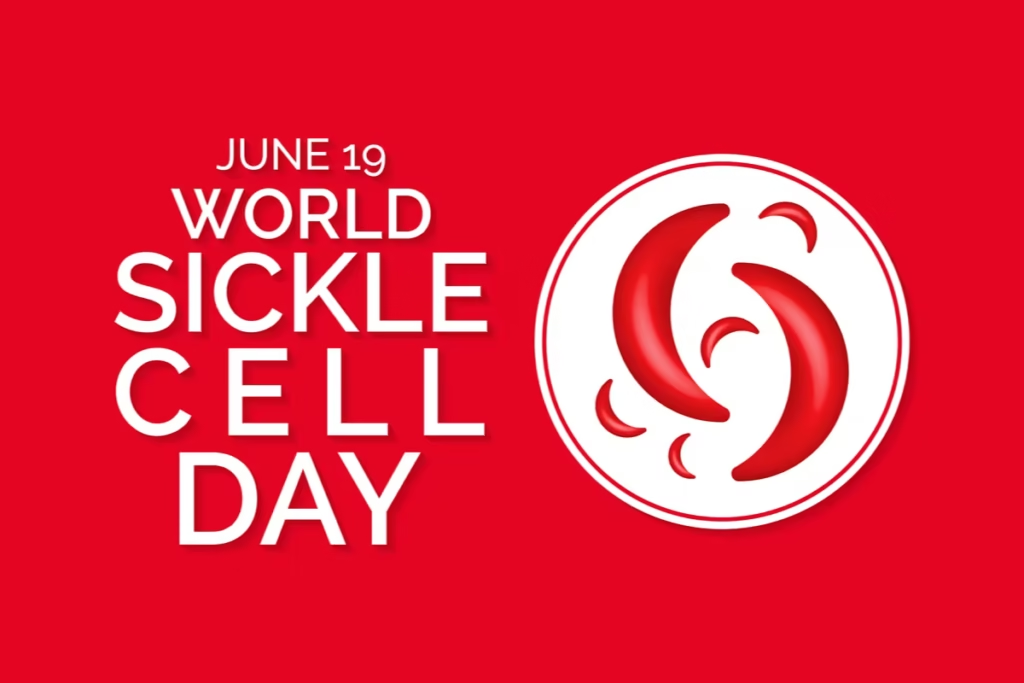[ad_1]
As the global community commemorates World Sickle Cell Day today, the spotlight turns to Nigeria—a nation bearing one of the heaviest burdens of Sickle Cell Disease (SCD) worldwide.
With over 150,000 babies born annually with SCD in Nigeria alone and millions more living with the condition, this inherited blood disorder represents both a public health challenge and a human tragedy in the making.
In Nigeria, Sickle Cell Disease is more than a medical issue—it is a public health crisis.
SPONSOR AD
According to the World Health Organisation, Nigeria accounts for over 50 per cent of SCD births globally, and 70–90 per cent of affected children die before their fifth birthday due to lack of early diagnosis and proper treatment.
Challenges contributing to Nigeria’s high SCD mortality include low public awareness, limited access to specialized care, inadequate newborn screening, high cost of treatment and stigma and misinformation
Despite efforts by government and NGOs, a national coordinated approach to SCD management remains elusive. However, growing collaboration with global centers of excellence is beginning to offer hope.
Sickle Cell Disease is a genetically inherited blood disorder that primarily affects the structure and function of hemoglobin, the protein in red blood cells responsible for carrying oxygen throughout the body.
In SCD, red blood cells, which are normally round and flexible, become rigid and take on a crescent or sickle shape. These abnormal cells are sticky, block blood flow, and die prematurely, leading to anemia and multiple complications.
Unlike healthy red blood cells that live up to 120 days, sickled cells die in just 10–20 days, causing a constant shortage of red blood cells and reducing the oxygen supply to tissues—a central cause of the disease’s complications.
The symptoms of SCD can vary widely among individuals, but pain is the most common and distressing symptom. Known as pain crises, these episodes are caused by blocked blood vessels and can range from mild to severe, often requiring emergency medical attention.
Other common symptoms are chronic anemia, swelling in hands and feet, frequent infections, delayed growth and puberty in children, vision problems and potential blindness as well as stroke, organ damage, and acute chest syndrome
The pain is not just physical—it impacts schooling, social life, and mental health.
In children, especially, untreated SCD can lead to long-term developmental issues.
SCD is caused by a mutation in the HBB gene, which encodes the hemoglobin protein. A person needs to inherit the defective gene from both parents to develop the disease. If only one sickle cell gene is inherited, the individual becomes a carrier (Sickle Cell Trait) but usually does not exhibit symptoms.
This genetic nature makes SCD particularly dangerous in regions like Nigeria, where carrier prevalence is high—around 25 per cent of the population carry the sickle cell trait. When both parents are carriers, there is a 25 per cent chance with each pregnancy that the child will have SCD. This makes genetic counseling essential in high-risk populations.
Early diagnosis is key to improving survival and quality of life for SCD patients. In many developed countries, newborn screening programmes are mandatory, enabling early intervention.
SCD can be diagnosed with a simple blood test. Confirmatory tests like hemoglobin electrophoresis and genetic testing provide definitive diagnosis and help plan treatment.
While there is no one-size-fits-all cure for SCD, several treatments can help manage symptoms, prevent complications, and extend life expectancy.
One of them is hydroxyurea therapy, an oral medication that increases the production of fetal hemoglobin, which reduces the sickling of red blood cells.
Hydroxyurea has revolutionised SCD care in the last two decades. It reduces pain crises, need for transfusions, and risk of stroke.
Another is regular transfusions which help to reduce complications such as stroke and acute chest syndrome. Red cell exchange is a more advanced option that rapidly reduces the number of sickled cells in circulation.
Stem Cell and Bone Marrow Transplantation. This is currently the only potential cure for SCD. A matched donor transplant can effectively replace the patient’s bone marrow with healthy cells.
While transplants are not feasible for every patient due to donor limitations and cost, advancements in haploidentical transplants are widening access for those without a matched sibling donor.
Managing SCD requires a holistic approach. Nutritional support, vaccinations, infection prevention, and genetic counseling are all part of a comprehensive care plan.
To turn the tide on Sickle Cell Disease in Nigeria, a multi-pronged strategy is essential:
This must involve nationwide newborn screening to catch cases early, a public health education to dispel myths and reduce stigma.
Government should endeavour to provide subsidised access to medications like hydroxyurea, establish regional centres of excellence with transplant capabilities and seek for international collaboration to leverage global expertise.
With awareness, investment, and compassion, we can give every child with SCD the chance to live a full, healthy life.
On this World Sickle Cell Day, the message is clear: Sickle Cell Disease is preventable, manageable, and—under the right conditions—treatable. With Nigeria at the epicenter of the global crisis, the time for action is now.
Whether through education, early screening, or access to world-class care, lives can be saved and futures rebuilt.
Dr Dua, is the Head of Pediatric Hematology, Hemato-Oncology, and Bone Marrow Transplant at Fortis Hospital Gurugram, India
Do you want to share a story with us? Do you want to advertise with us? Do you need publicity for a product, service, or event? Contact us on WhatsApp +2348183319097 Email: platformtimes@gmail.com
We are committed to impactful investigative journalism for human interest and social justice. Your donation will help us tell more stories. Kindly donate any amount HERE




